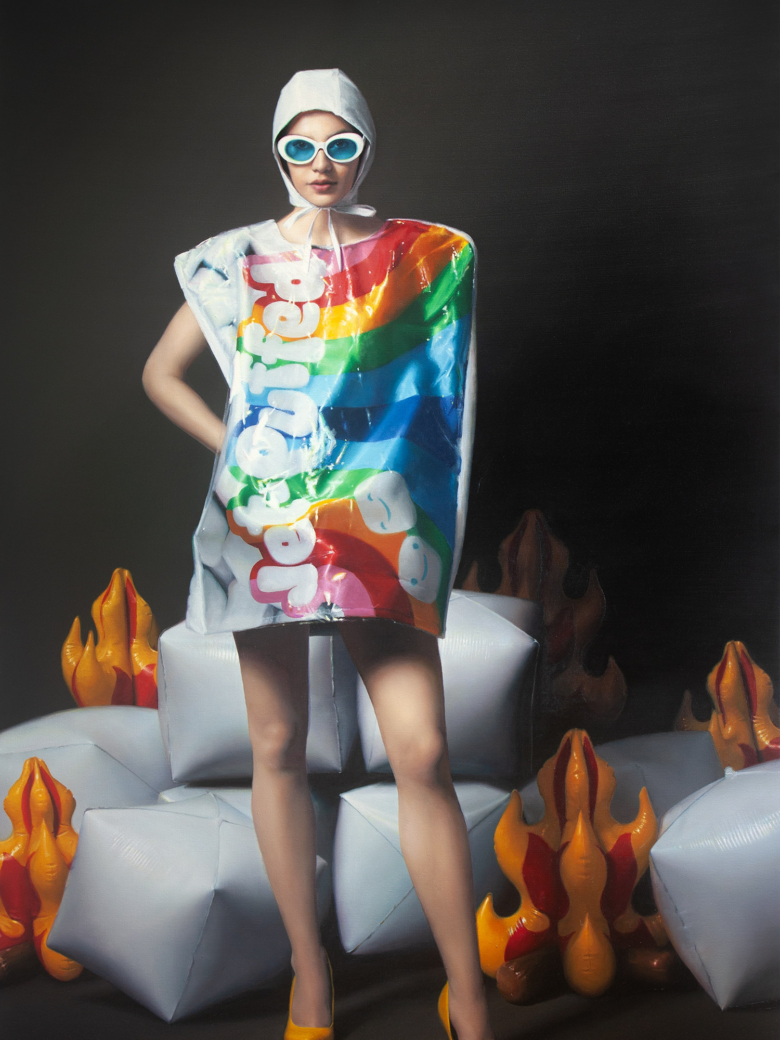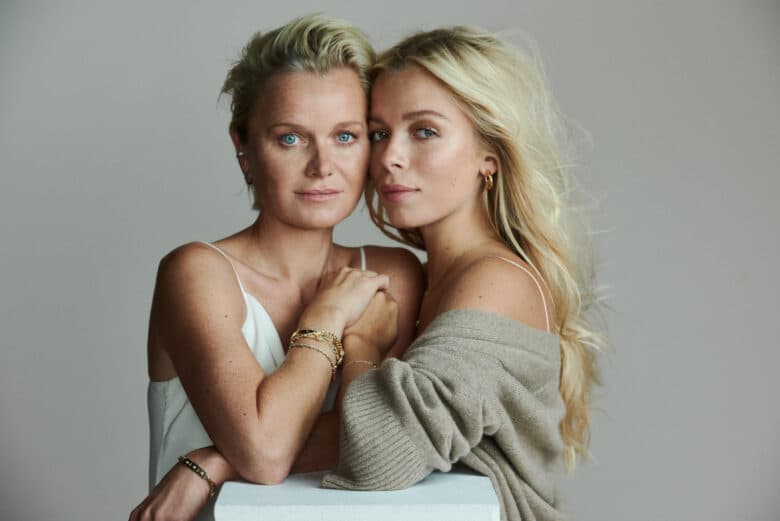‘Jumbo’: A Larger-Than-Life Love Story
The debut from Belgian writer-director Zoé Wittock, fantastical romance Jumbo follows fairground worker Jeanne as she falls for her favourite ride called, you guessed it, Jumbo. Referencing the real-life story of Olympic gold winner Erika LaBrie, who married the Eiffel Tower, the film marked Wittock as one of Europe’s new directors to watch for her fearless, surrealist vision.
Fans of unconventional cinematic heroines will also recognise Noémie Merlant, known for her turn in Portrait of a Lady on Fire, as protagonist Jeanne. Proving somewhat less familiar is the fairground ride, viewed through Jeanne’s perspective and coming alive with glowing red lights, smooth chrome, and oily hydraulics — which have a very clearly hypnotising effect on Jeanne. Yet, casting moral judgements aside, Whittock’s debut invites us to shelve our preconceptions and open our hearts when our minds fail us.
Below, we catch up with the filmmaker about objectiphilia and finding the nuance between fucking and making love.
When did you first decide to become a filmmaker?
I was a teenager seeking for new ways of expression. At the time, I was suffering from a lot of bullying and felt so misunderstood that it was like a calling for me to seek better ways of communication — and expression! I was already a movie buff, but that’s really when I first came to understand the power of storytelling.
Jumbo is your first feature film — did you feel any pressure or expectation?
Far less pressure than for a second film! The hardship of a first feature is proving to people that you are capable of pulling together a story that stands from beginning to end. Even though I had short films under my belt, the story I was trying to pull off was so ambitious that a lot of people would question the feasibility of such a film as a first feature [in the end] it took 8 years! But the great thing about a first feature is that no one is expecting anything from you, they’re just waiting to see it. It’s really freeing!
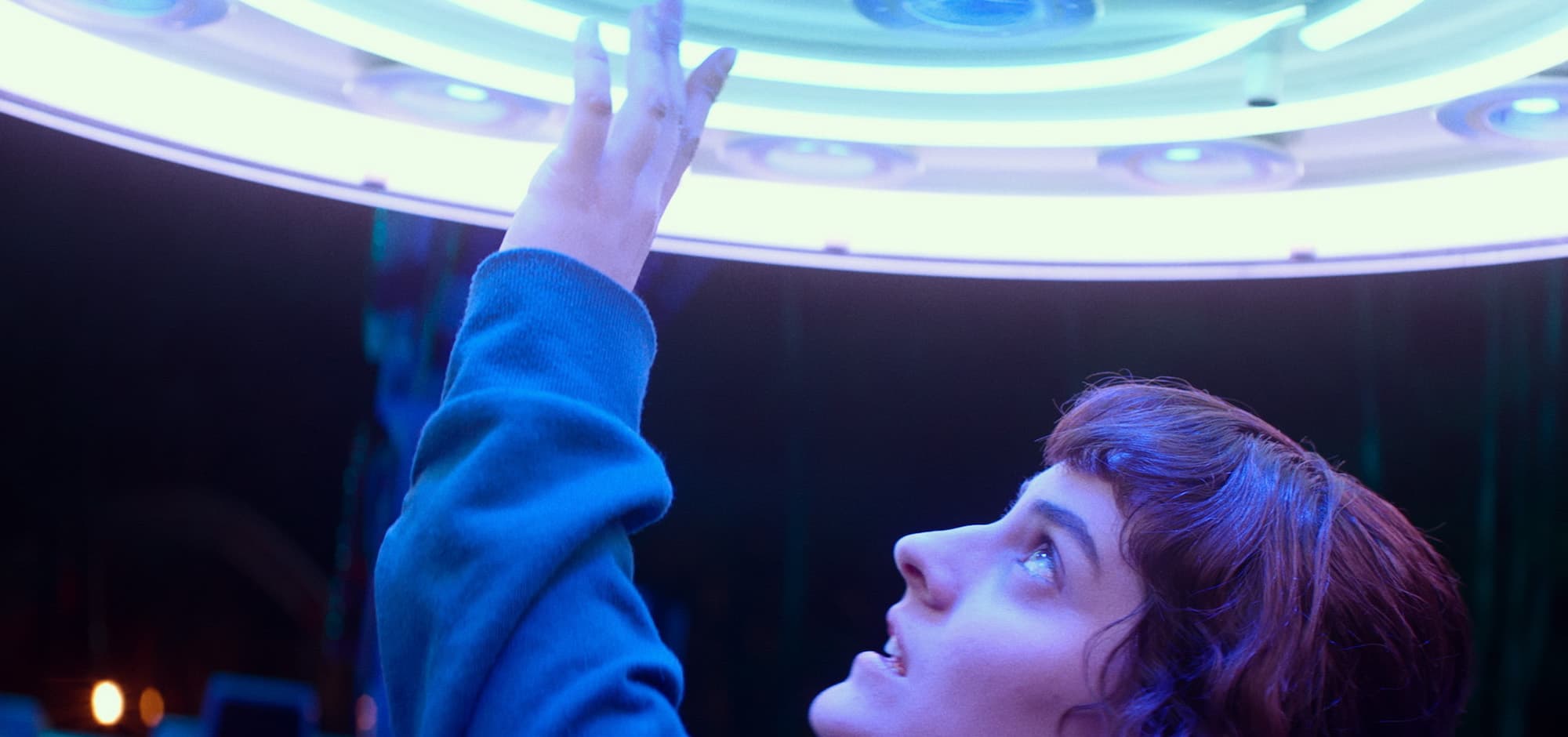
How did you cast the film? I imagine it might have been tricky to find your Jeanne…
The normal way of casting: I sent out a call to young actresses’ agents, gathered all the info on any actress that was intriguing or standing out in some way and called them in. I knew that I needed a professional actress with a minimum of experience because Jeanne is such a complex character – one that requires as much technique as it needs courage!
Jumbo was inspired by a true story: what drew you to that tale and why did you think it deserved time on the big screen?
At first, it was just the eccentricity of the story that attracted me to it. I wanted to understand the person hidden behind a statement like: “I’m marrying the Eiffel Tower”. I thought she would most certainly be weird and original, which is what some people like to call a “freak”, but I found someone strangely grounded in reality. The contrast between expectation and reality was so strong, it left me speechless for a while. Then, I realised the story and subject matter would create such intense debates every time I brought it up that I decided I had to put those questions onto the screen and, most importantly, l had to enter that debate through an emotional standpoint rather than an intellectual one
You adapted the original story, of a woman being in love with the Eiffel Tower, to a fairground setting — why did you think this shift was needed?
The Eiffel Tower is a beautiful landmark object, but it’s so identifiable that it would have become the star of the show had she been in it! I wanted to create a fresh space in which there was more room for imagination and enough freedom to not be bothered with preconceptions people may have. The important thing to translate here was the emotional journey of the character, both with the machine and her mum.
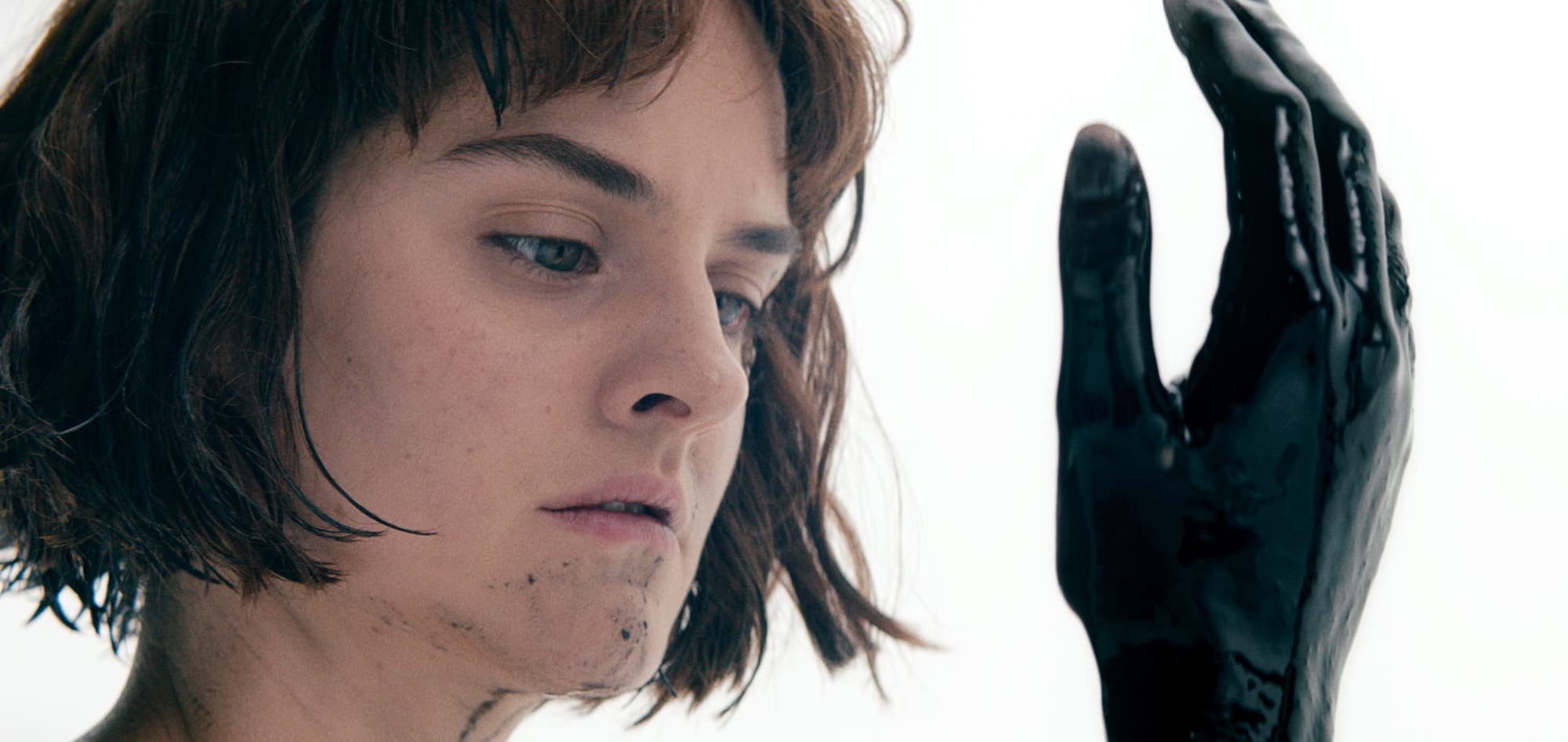
Do you have any thoughts of your own on objectifilia?
My hope is not to define objectophilia but rather question the notion of “norm”. This qualification has a tendency to let the individual disappear behind the group who, in turn, defines the standard of what’s acceptable or not. Here, I wanted to put the “judgement” at an individual’s level in order to seek more tolerance. In the film it questions whether or not she is hurting anyone, and from that moment on pushes you to rethink what you’ve been taught: man loves woman and vice versa. My desire is not to create new norms or standards, which, in a way, will constantly be restrictive to a group or another, but rather to encourage anyone to constantly question any norms with tolerance! I want people to push their understanding of the “other”, rather than aim for the quick and easy comfort of judgment.
What does Jumbo have in common with other romantic films?
Everything! It has the love interest, the exploration of passion and sexuality, the complications of the love story when an outsider comes into the mix, the fights, the reconciliation, the fight again… I purposefully used the codes of romantic stories for two reasons: one: to the character, it’s just another love story! And two, it could be so surprising to some that it’s enjoyable to rely on some of the romantic codes of the fairytale. Jumbo is a film that is meant to be about love, but also meant to feel like a love boat! You’re meant to swing left and right, cruise a little, sometimes get washed away in a storm, enjoy the quiet sunshine and the still sea that follows. You could also say that it’s a roller coaster ride!
How did you go about creating a sense of romantic or sexual tension between Jumbo and Jeanne?
For me, the romance comes from the poetry between them. Thanks to surrealism, we were able to transcend visually what one person may normally only sense emotionally! But then, of course, sexuality was essential, and for that the first thing that came to mind was texture! How do you replace the flesh on flesh feeling of sex?! When I first tried to understand Erika Eiffel, who’d fallen in love with the Eiffel Tower, some of my first questions were of course about attraction, and ultimately about sex, the physical part of attraction. Although I am not personally attracted to objects of course, I could understand how a touch on metal, leather or oil, whether hot or cold, could lead to a physical arousal! Our flesh is so reactive when we let it be! After that, it just became about imagining the codes and finding the “mechanical” nuance between “fucking” and “making love”. …Isn’t my job fun!
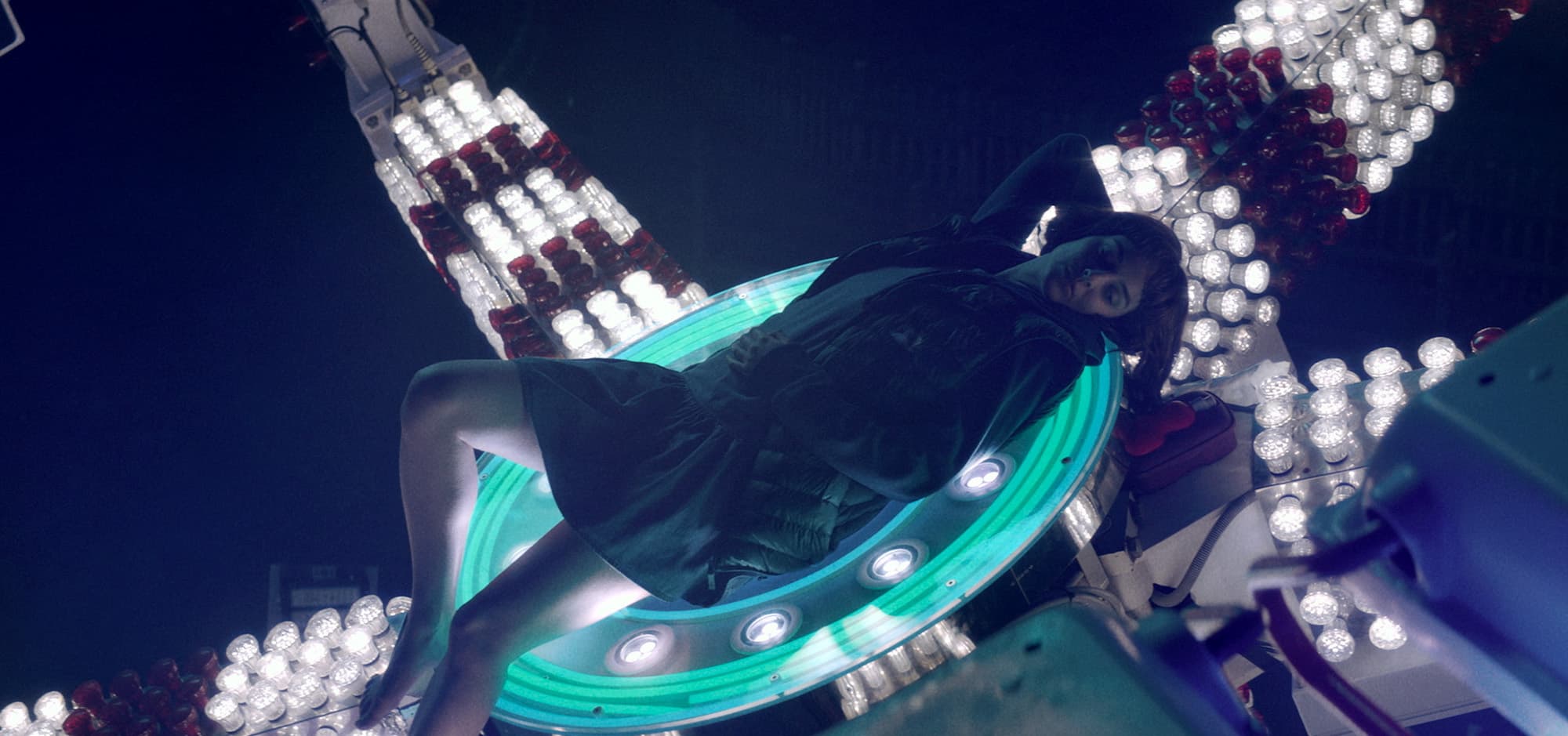
Was surrealism an inspiration for you in the film then?
Indeed it was! Like I mentioned, it couldn’t have been possible to tell this particular love story without it — it would have turned the film into an observation rather than a sensual exploration of love.
Outside of Jumbo specifically, you’re a member of the SRF and campaign for greater equality in cinema — could you tell us a bit about the industry changes you would like to make?
Generally speaking, I tend to be interested in cinema that portrays outsiders! Having personally been one all my life through my travels, I could easily say how much I despise exclusive groups, whether through culture, race, gender or any other socio-economic trait. I tend to push for more inclusive stories [and am] constantly aware of clichés to avoid. Being a filmmaker, any change you want to make in the industry has to start with the kind of stories you decide to tell. My other big focus is on how stories are selected, meaning that it’s more about rethinking the diversity in selection committees, whether it comes to financiers, grants or festivals, rather than imposing selection quotas to those committees.
What’s next for you?
I’ve just finished a draft on my first English language film! But I’m of course developing another French language film at the same time. And who knows, maybe some TV?
‘Jumbo’ is showing in UK and Irish cinemas now.
